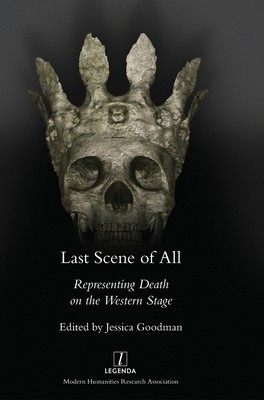
- We will send in 10–14 business days.
- Publisher: Legenda
- ISBN-10: 1781886865
- ISBN-13: 9781781886861
- Format: 17 x 24.4 x 1.3 cm, kieti viršeliai
- Language: English
- SAVE -10% with code: EXTRA
Last Scene of All (e-book) (used book) | bookbook.eu
Reviews
Description
Death in classical tragedy is an ending: a symbolic moment of catharsis, read by the audience according to theatrical and cultural tradition. Yet any stage death is also a non-ending: just one in a series of repeated (re)presentations, by an actor who will live (and die) again. Spanning six centuries and seven countries, this study considers how different dramatic authors have engaged with this tension, examining the representation of death as theme and practice; culturally-inflected symbol and never-ending ending. In tracing how Western authors since the sixteenth century have played with and against classical notions of endings and closure, these essays explore the potential and limits of the physical stage for confronting human mortality.
Jessica Goodman is Associate Professor and Tutorial Fellow in French at St Catherine's College, Oxford.
EXTRA 10 % discount with code: EXTRA
The promotion ends in 23d.19:13:03
The discount code is valid when purchasing from 10 €. Discounts do not stack.
- Publisher: Legenda
- ISBN-10: 1781886865
- ISBN-13: 9781781886861
- Format: 17 x 24.4 x 1.3 cm, kieti viršeliai
- Language: English English
Death in classical tragedy is an ending: a symbolic moment of catharsis, read by the audience according to theatrical and cultural tradition. Yet any stage death is also a non-ending: just one in a series of repeated (re)presentations, by an actor who will live (and die) again. Spanning six centuries and seven countries, this study considers how different dramatic authors have engaged with this tension, examining the representation of death as theme and practice; culturally-inflected symbol and never-ending ending. In tracing how Western authors since the sixteenth century have played with and against classical notions of endings and closure, these essays explore the potential and limits of the physical stage for confronting human mortality.
Jessica Goodman is Associate Professor and Tutorial Fellow in French at St Catherine's College, Oxford.


Reviews